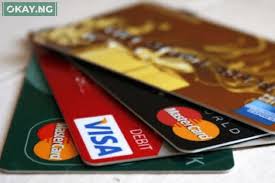Nigerian banks have resumed the use of naira debit cards for international transactions and online payments, more than three years after suspending the service due to acute dollar scarcity. The move marks a significant shift in Nigeria’s foreign exchange environment, signalling improved dollar liquidity following economic reforms introduced by President Bola Ahmed Tinubu.
Among the banks now reactivating international spending on naira cards is Guaranty Trust Bank (GTBank), one of Nigeria’s largest financial institutions by market value. In a notice to its customers, GTBank stated that naira debit cards can now be used for a maximum of $1,000 per quarter across all international payment channels. This includes online purchases on foreign websites, ATM withdrawals abroad, and Point-of-Sale (POS) transactions outside Nigeria.
Stanbic IBTC, a Nigerian subsidiary of South Africa’s Standard Bank, has also joined the list of banks reactivating the service. The bank set a monthly limit of $500 for international use on its naira-denominated credit cards. Similarly, First Bank of Nigeria and Wema Bank have both announced a $500 monthly cap for international transactions using their naira debit cards.
This development comes after over three years of restrictions that limited naira cardholders from spending in foreign currencies, a move originally prompted by Nigeria’s dollar crunch between 2020 and 2022. At the time, the Central Bank of Nigeria (CBN) had imposed various controls to manage foreign exchange outflows and prioritise essential imports.
The recent lifting of those restrictions reflects increased dollar availability in the Nigerian financial system. According to the CBN, the country’s external reserves reached $39 billion in May 2025, while foreign exchange inflows rose to $28.92 billion in the first quarter of the year. These figures represent a marked improvement compared to previous years when dollar shortages disrupted trade, travel, and remittance operations.
Financial analysts credit these positive indicators to a series of reforms launched by the Tinubu administration in 2023. Most notably, the government removed currency controls in June 2023, allowing market forces to determine exchange rates. This move helped to unify the multiple exchange rates previously used in Nigeria, reduced arbitrage, and encouraged greater transparency in the forex market.
As of Monday, July 8, the naira was trading at around ₦1,528 to the U.S. dollar in the official market, according to data from the London Stock Exchange Group (LSEG). Though still significantly weaker than its value in early 2023, the naira has remained relatively stable for several months now—offering banks more confidence to reintroduce foreign transactions on naira cards.
The reinstatement of naira card usability for international transactions will come as a relief to many Nigerians, especially students, business travellers, e-commerce users, and professionals who rely on international payments. In recent years, many Nigerians had resorted to opening domiciliary accounts or sourcing dollars unofficially to meet overseas spending needs.
While the new transaction limits remain conservative, especially in a global economy where costs of goods and services have increased, they represent a cautious but meaningful return to normalcy. Bank officials say the move will be reviewed regularly in line with the foreign exchange market’s performance.
Despite these improvements, Nigeria’s foreign exchange market still faces challenges. Inflation remains high, and the country continues to rely heavily on crude oil exports for dollar inflows. Experts warn that sustaining foreign exchange stability will depend on deepening non-oil exports, improving investor confidence, and maintaining consistent monetary and fiscal policies.
In the meantime, customers are advised to confirm the terms and conditions of international card usage with their respective banks, as policies may vary slightly among institutions.
